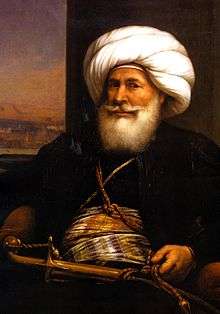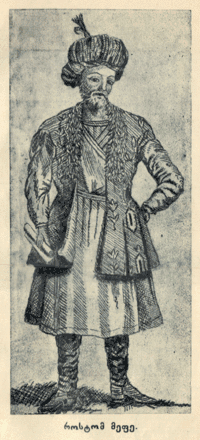Vali (governor)

Wāli or vali (from Arabic والي Wāli) is an administrative title that was used during the Caliphate and Ottoman Empire to designate governors of administrative divisions. It is still in use in some countries influenced by Arab or Muslim culture. The division that a Wāli governs is called Wilayah, or, in the case of Ottoman Turkey, "Vilayet".
Algerian term
In Algeria, a wāli is the "governor" and administrative head of each of the 48 provinces of the country, and is chosen by the president.
Iranian term
In Iran the term is known as Vāli and refers to the governor-general or local lord of an important province. During the Safavid reign 1501-1722 the former rulers of the then subordinated provinces of the Georgian Kartli and Kakheti kingdom, the Kurdish emirate of Ardalan, the chiefs of Lorestān Province and of Khuzestan Province in western Iran were regarded as hereditary governor-generals titled Vāli equal to the Beylerbeylik (Safavid Persia). These "lords of the marches" should protect Iran's western borders against foreign powers. During the Qajar rule 1785-1925 the kingdom of Georgia was lost to Russia and the hereditary lords were replaced by officials of the central power. Mainly these officials came from the group of imperial princes and royal notables and were made Vāli of important provinces. For example, the crown prince bore traditionally the title of Vāli of Azerbaijan (Iran).
Ottoman Empire term
"Vali" was the title in the Ottoman Empire of the most common type of Ottoman governor, in charge of a vilayet (in Ottoman Turkish), often a military officer such as a pasha; see Subdivisions of the Ottoman Empire.
Turkish term
In Turkey (the main successor state to the Ottoman Empire), a wāli (spelled as "vali") is the "governor" and administrative head of each of the 81 provinces of the country, and is appointed by the government.
Omani Sultanate term
The Sultanate of Oman, when it ruled Mombasa, Kenya, appointed a wali for the city known locally as LiWali. The term is still used today to denote settlements of Oman, such as the Wilayat Madha, a settlement which intersects the road between Madam in Sharjah and Hatta in Dubai in the United Arab Emirates (UAE). Many Rulers of the Trucial States (also called Trucial Oman in the past) appointed walis to look after towns on their behalf, including employing slaves for that purpose.
Moroccan term
Since 1997 regionalisation reform, a Wāli is the governor of one of the sixteen regions of Morocco.
Pakistani term
In Pakistan, the rulers of the former princely state of Swat were given the title of Wali.
Philippine term
In the Philippines, the term Wali is the proposed name for the titular head of Bangsamoro, a proposed, autonomous political entity in the large southern island of Mindanao. The Bangsamoro, which is intended to give devolved powers to Filipino Muslims, is intended to supersede Autonomous Region in Muslim Mindanao. The Wali (analogous to the present Governor of the ARMM) will have ceremonial functions and powers such as moral guardianship of the territory and convocation and dissolution of its proposed legislature.[1]
See also
References
- ↑ Kabiling, Genalyn (11 September 2014). "PNoy submits draft Bangsamoro law Entity to have 58 exclusive powers; UN, Canada hail move". Manila Bulletin. Manila Bulletin. Retrieved 2 February 2015.
